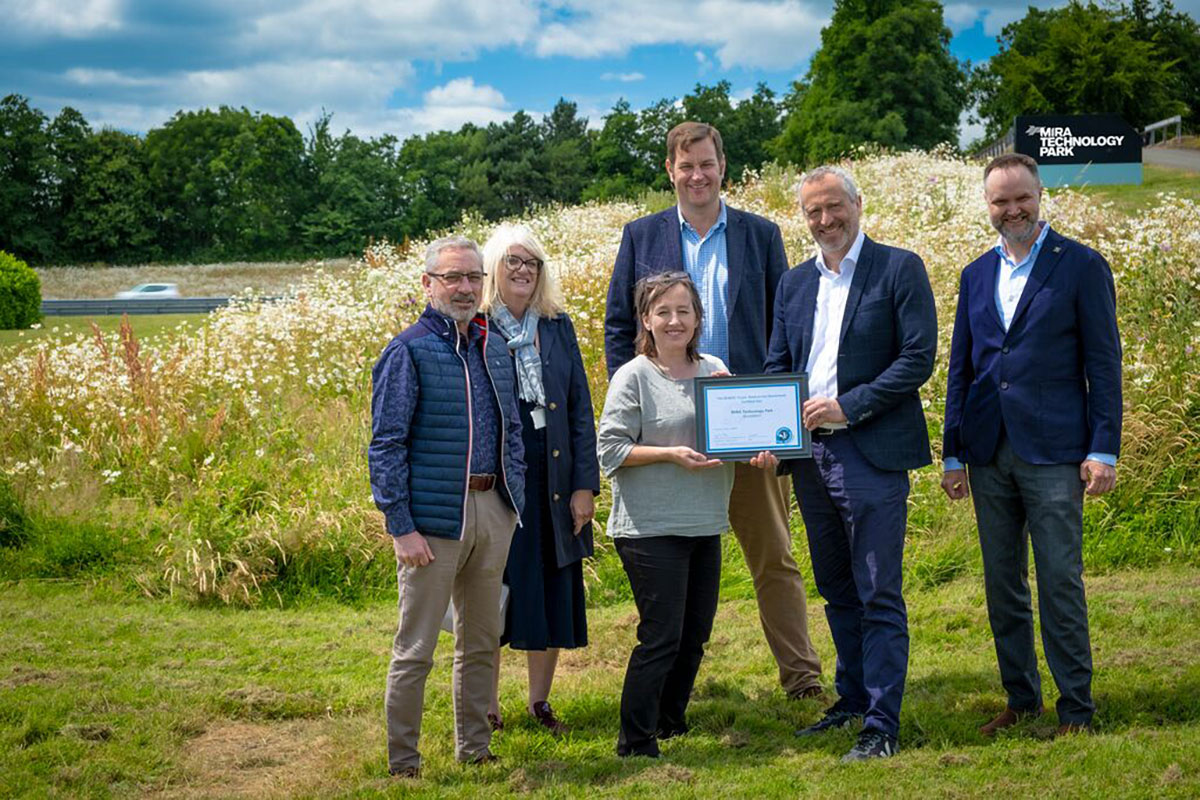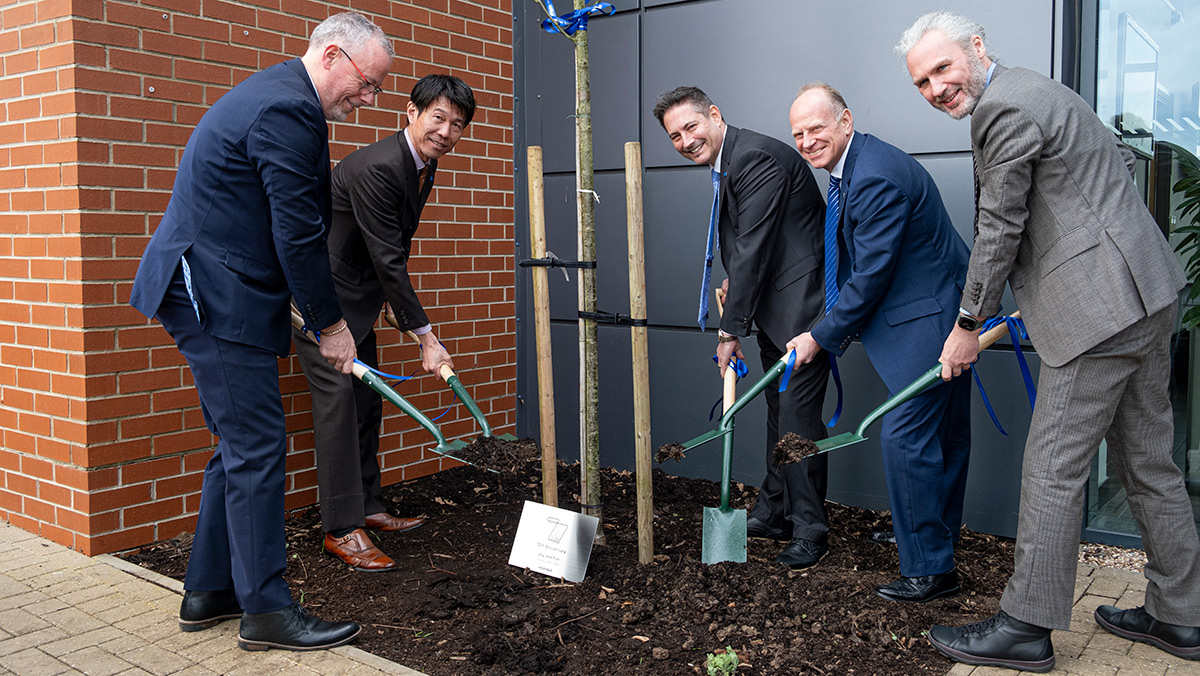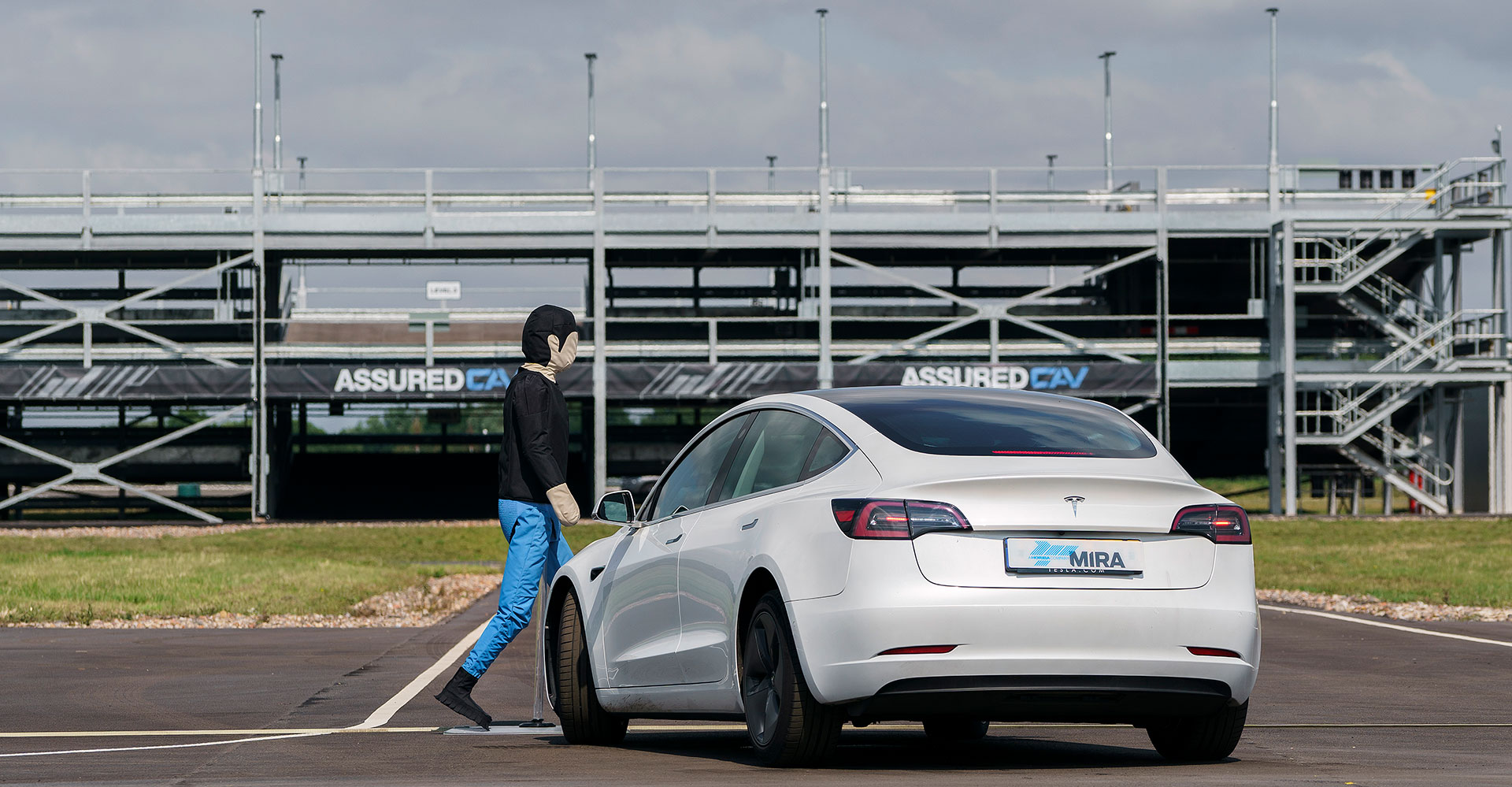Nissan Leaf Completes the UK’s Longest and Most Complex Autonomous Car Journey
A British-based research project into the latest autonomous vehicle technologies has successfully completed a 230-mile self-navigated journey on UK roads.
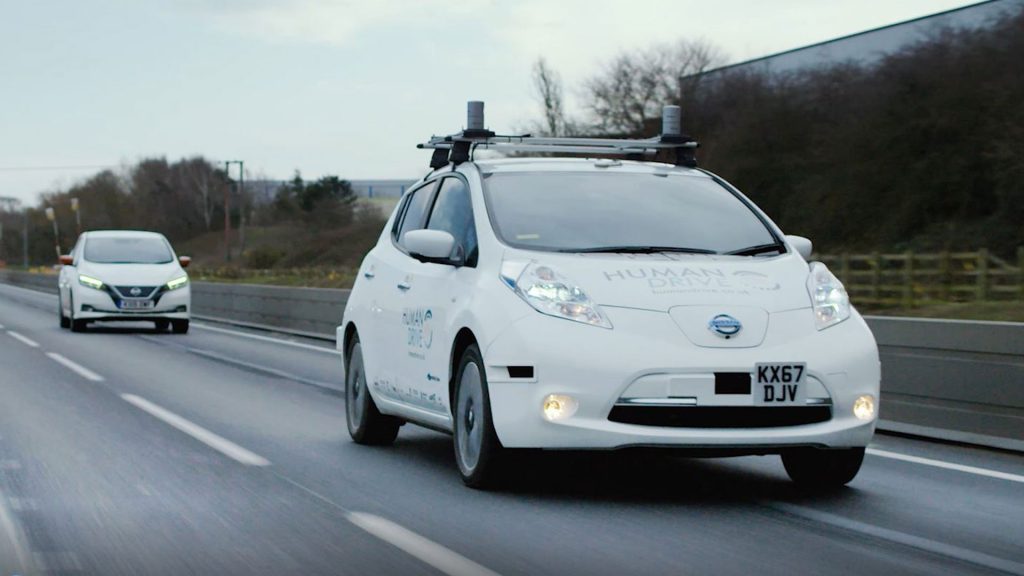
The project, HumanDrive, is jointly funded by UK government through the Centre for Connected and Autonomous Vehicles (CCAV) and Innovate UK, and nine other consortium partners. The joint funding package for the project totalled £13.5m.
The research project has successfully completed two trials, a 230-mile self-navigated journey on UK roads – ‘Grand Drive’ – using advanced positioning technology and also a test track based activity which explored human-like driving using machine learning to enhance the user experience.
The test vehicles included Nissan LEAFs, featuring GPS, radar, LIDAR and camera technologies that build up a perception of the world around it. Using that perceived world, the system can make decisions about how to navigate roads and obstacles it encounters on a journey.
Grand Drive in Detail
The first element of the project was the ‘Grand Drive’ from Cranfield, Bedfordshire, to Sunderland. The achievement was the culmination of 30 months’ work by the HumanDrive consortium – a team led by Nissan engineers in the UK, working in partnership with consortium members.
One of the key aspects of the project was to develop an advanced, autonomous vehicle control system. Ensuring that future advanced autonomous drive systems create a comfortable and familiar experience for customers is important as we move towards a more connected and autonomous future.
The 230 mile journey saw the lessons learned put into practice in a range of driving scenarios to negotiate country lanes with no or minimal road markings, junctions, roundabouts and motorways. The autonomous technology activated along the route to change lanes, merge and stop and start when necessary.
Bob Bateman, Project Manager for Nissan Technical Centre, Europe, said:
“The HumanDrive project allowed us to develop an autonomous vehicle that can tackle challenges encountered on UK roads that are unique to this part of the world, such as complex roundabouts and high-speed country lanes with no road markings, white lines or kerbs.”
The Grand Drive was achieved as the UK-based consortium members worked together to investigate how autonomous driving can emulate a natural, human-like driving style.
HumanDrive and Machine Learning
The second part of the HumanDrive project looked at how machine-learning Artificial Intelligence technologies could enhance the user experience and passenger comfort of connected and autonomous vehicles. Pilot vehicles tested successfully on private tracks also incorporated artificial intelligence systems developed by fellow consortium member Hitachi Europe Ltd, which enable real-time machine-learning. By building a dataset of previously encountered traffic scenarios and solutions, it can use this ‘learned experience’ to handle similar scenarios in future and plot a safe route around an obstacle.
These technologies were subjected to a robust testing process and developed using a range of facilities, including simulation, hardware in the loop, private test tracks.
Business Minister, Nadhim Zahawi, said:
“Safely completing the longest autonomous drive in Britain is an incredible achievement for Nissan and the HumanDrive consortium, and a huge step towards the rollout of driverless cars on UK streets.
“This project is a shining example of how the automotive industry, working with government, can drive forward technology to benefit people’s mobility – while helping to slash carbon emissions.”
Future of Transport Minister, George Freeman said:
“The UK is fast becoming a leader in intelligent and automated vehicle and traffic management technology, a huge global sector set to create thousands of jobs.
“Our Future of Mobility: Urban Strategy is supporting transport innovation for cleaner, greener and smarter transport, and Nissan’s successful HumanDrive project is an exciting example of how the next phase of the UK’s transport revolution could look.”
HumanDrive also went beyond the development of autonomous drive technology. The research also focused on advancing cyber security features in AD vehicles, developing testing and safety methodologies for UK AD testing and investigating the implications of AD vehicles on the wider transport system.
HumanDrive and Nissan
While remaining a UK-based research project for now, the lessons learned from HumanDrive will help inform future AD systems.
Today, the new Nissan JUKE, LEAF, Qashqai and X-Trail models are all available with ProPILOT, a Nissan Intelligent Mobility technology and enhances a driver’s control by assisting with steering, acceleration and braking. It works in a single lane on highways, and is optimised for low-speed congestion and high-speed cruising.
By liberating drivers from some of the more mundane elements of motoring, ProPILOT helps to reduce fatigue and stress, whilst improving safety and enhancing control and confidence.
David Moss, Senior Vice President for Research & Development in Europe, Nissan Europe, said:
“Nissan’s Intelligent Mobility vision is to develop autonomous drive technologies for use in all of our cars in any area of the world. The door is now open to build on this successful UK research project, as we move towards a future which is more autonomous, more electric, and more connected.”
HumanDrive project consortium members and areas of expertise
- Lead partner and leading the autonomous vehicle (AV) development
- Artificial Intelligence (AI) to provide human-like control and perception
- University of Leeds. Understanding humanistic driving and its application to AVs whilst also developing a driver risk model
- Connected Places Catapult (CPC). Project management, communications and marketing activity, dissemination and safety case elements of the project
- HORIBA MIRA. Provider of test facilities, supported safety aspects of the project
- SBD Automotive. Cyber security support and AV Human machine Interface (HMI) studies
- Cranfield University. Provider of test facilities and supported AV demonstrations
- Atkins Ltd. Provision of a Cyber Security Framework
- Aimsun Ltd. Studying the impact of AVs on the transport system
- Highways England. Understanding the infrastructure needs for AV deployment
Richard Hillman, Principal Engineer for Connected and Autonomous Vehicles, HORIBA MIRA, said;
“HumanDrive has enabled HORIBA MIRA to develop our ability to replicate within the safe and controlled environment of our proving ground the complex scenarios seen on public roads, and to develop a process to interrogate an autonomous vehicle’s functionality thoroughly and efficiently. Not only has the HumanDrive project demonstrated that the UK is a great place to test autonomous vehicles – with some challenging roads and strong support from the government – but we’ve pushed the boundaries of what these autonomous systems can do. The learning from the project is helping to inform national and international discussions around the safety and security of connected and autonomous vehicles and their future regulations.”
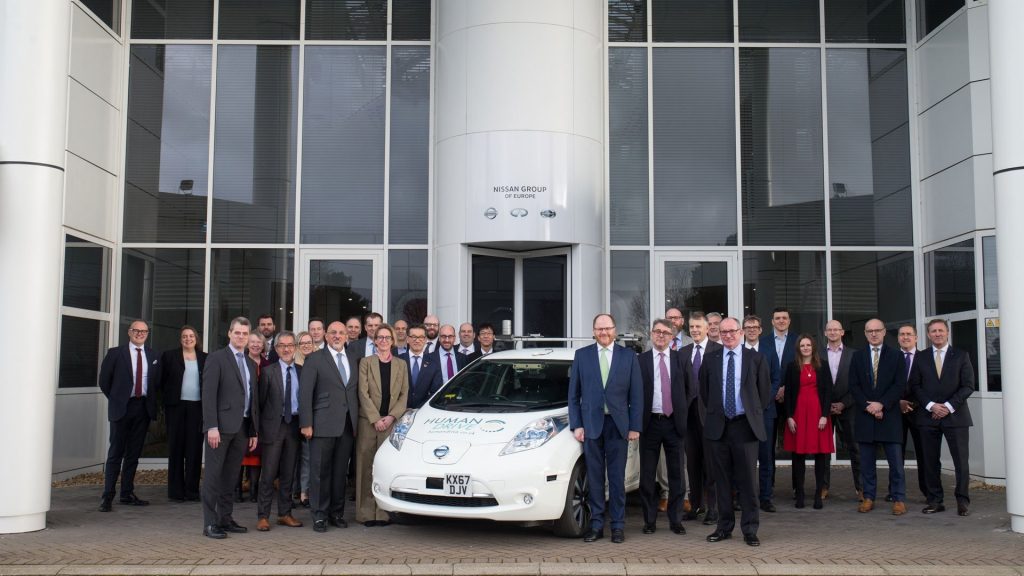
NOTES TO EDITORS
The Grand Drive journey was successfully completed on 28th November 2019, with two engineers on board and monitoring the vehicle’s actions at all times. Both were fully trained to conduct autonomous vehicle testing, with one behind the wheel and ready to take control if required, and the second supervising the car’s control and monitoring systems. The Grand Drive journey was also conducted with the knowledge and support of all relevant highway authorities.
ADDITIONAL QUOTES FROM HUMANDRIVE CONSORTIUM PARTNERS:
Nick Blake, Chief Innovation Strategist, Hitachi Europe Ltd
“Hitachi European R&D developed pioneering AI technology to exploit the plethora of driving data generated from modern cars to improve the comfortability and safety of future autonomous vehicles.”
Professor Natasha Merat, Chair in Human Factors of Transport Systems at the University of Leeds
“The main aim of the project is for the HumanDrive car to travel in a way that is comfortable, natural and ultimately trustworthy for the user. Integrating human-like controllers in automated vehicles will provide a smoother, more comfortable, experience for drivers and our algorithm development is trying to achieve this, along with an understanding of what people want from an automated driving experience. Using our state-of-the-art driving simulator, we have spent the past 30 months developing new control models for automated vehicles, using data from a range of participants, which are then evaluated by drivers and compared to a recording of their own drive.”
Nicola Yates OBE, Connected Places Catapult CEO
“The HumanDrive Connected & Autonomous vehicle project is a fantastic demonstration of the UK’s ability to deliver world leading innovation projects. HumanDrive has bought together a world class consortium incorporating large organisations, SMEs and academia that has taken autonomous technology to the next level in terms of ride comfort, safety and adaptability, covering a number of different road scenarios with natural road positioning. The Connected Places Catapult have been honoured to use our expertise alongside our partners on the development and deployment of this ground breaking technology, a technology that has the potential to make a real step change in our capacity to connect people.”
Mark Brackstone, Research Project Manager, AIMSUN
“Aimsun has been investigating the likely impact of CAVs through the use of microscopic simulation models of England’s Strategic Road Network (SRN). We have examined the impact of CAVs on groups of road users and vehicles with varying percentages and types of equipped vehicles and seeing how these affect the speed and density of both the CAV, and non-CAV traffic. This has provided stakeholders with data for basic cost-benefit assessments in order to judge steps needed in planning for the introduction of CAVs to the road network.”
Dr Wolfgang Schuster, Intelligent Mobility Technical Director, Atkins
“Human Drive has made significant contributions towards setting the standards for a cyber security framework that will be fundamental to the development of end-to-end certification frameworks for the future of mobility ecosystem. I think it is fair to say that Human Drive has made a huge step towards enabling the safe and secure rollout of CAVs on UK roads.”
Professor James Brighton, Head of the Advanced Vehicle Engineering Centre, Cranfield University
“Cranfield’s role in this project has been to develop ways of measuring human-like driving behaviour and then verify that this is reflected in the autonomous driving style of the cars. Our Multi-User Environment for Autonomous Vehicle Innovation (MUEAVI) – a ‘smart’ road test environment, which is a first of its kind in the UK, built alongside a research airport within the controlled setting of a University campus – has been used extensively throughout the project to analyse and fine-tune the autonomous vehicle’s perception and control systems that have produced the human-like driving characteristics. The project has also provided our Automotive Engineering and Mechatronics MSc students with an opportunity to gain hands-on experience with the technology that will define the next generation of automotive vehicles.”
Dr Joanna White, Head of Intelligent Transport Systems, Highway’s England
“We were delighted to be part of the HumanDrive consortia and welcomed the opportunity to be involved in this interesting project. We had two roles, ensuring the trial was undertaken safely on our network and; working with Aimsun to model the impact of autonomous vehicles on our network. As the network operator we are supporting a range of projects as part of our digital roads programme, which will help us define what the roads of the future will look like. This will help in the movement of people and goods across the network – connecting the country better.”
David McClure, Head of Cyber Security, SBD Automotive
“HumanDrive has helped to place the UK on the map in terms of autonomous vehicle development, and in particular focusing minds on making the ‘ride’ experience as close to a human-driven car as possible. SBD’s role in the project was to think about the cyber threats that could face a production version of the HumanDrive system, and to develop an over-arching security concept that will help protect future autonomous vehicles from malicious attack. As experts in connected and autonomous vehicles, SBD Automotive has a niche offering compared to more generalist cyber companies. We plan to use our involvement in HumanDrive to raise awareness of our capability and to further differentiate our services from the mass market of generic pen testing companies.”
